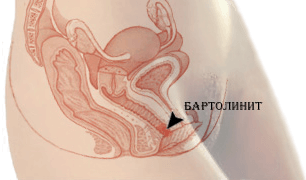It hurts to write to a woman: reasons, what to do, how to treat?
The appearance of painful sensations when urinating should alert a woman. She needs to take measures to find out the reasons that led to this symptom, and start treatment. After all, the passage of urine, causing pain, can signal serious diseases of the genitourinary system.
Content
- Causes of pain
- Diagnostics
- Pain treatment
- Prevention of pain
- Related Videos
Causes of pain
The mechanism of pain can be of various origins. It is divided into types:
- the mucous membranes of the bladder or urethra react to urine output with pain due to the inflammatory process on their surface;
- stones and sand are present in the urine, traumatizing the mucous membranes;
- a strong contraction of the muscles of the bladder occurs with pathological narrowing of the urethra.
One of the options for the occurrence of discomfort most often indicates the presence of inflammation or infection. Therefore, when it hurts to write to a woman, the reasons may indicate the presence of diseases:
- Urethritis - the inflammatory process affects the mucous membranes of the urethra. The passage of urine mixed with mucus causes a burning sensation and pain in the perineum.
- Cystitis - inflammation of the bladder caused by the vital activity of pathogenic microorganisms (chlamydia, streptococcus, Trichomonas). It is manifested by a sharp, sudden pain during urination and a feeling of incomplete emptying.
- Urolithiasis disease. Chaotic movement of sand or stone in the urethra periodically provokes painful sensations. The disease develops due to a violation of metabolic processes in the body, lack of vitamins or improper diet. Cramping pains in the abdomen and lower back are added to the main symptom.
- Vaginitis - the organ becomes inflamed due to infection with fungi and bacteria. Its swelling leads to pain and burning when passing urine.
- Hormonal imbalance with menopause, it leads to a decrease in estrogen in the body. This hormone affects the condition vaginal mucous membranes. The surface of the organ becomes dry and vulnerable, easily injured. In this state, the mucous membrane reacts with pain when urine passes.
- Genital herpes - an infectious disease of the genital organs. One of its symptoms is painful urination, which is accompanied by a burning sensation and the appearance of bubbles with a clear liquid on the genitals.
- An allergic reaction is manifested by pain when urinating due to the use of poor-quality hygiene products. In their composition, most likely, there are components that cause individual intolerance. Underwear made from artificial fabrics can also provoke allergies.
Read also:Endometriosis of the uterus: what is it, how dangerous it is, symptoms, signs and treatment in an accessible language
Almost all sexually transmitted diseases lead to the fact that it is painful for a woman to go to the toilet on a small one.
Their characteristic symptoms can join the pain - atypical vaginal discharge, itching of the perineum, fever, general weakness.
In addition, pain when passing urine can be a symptom of the formation of a benign or malignant tumor on the internal organs.
Diagnostics

When there is pain during urination, a woman should not think long about what to do. The answer is obvious - go to an appointment with a urologist, gynecologist or venereologist. The medical specialist will prescribe the necessary examination. It may include:
- Clinical analysis of urine the presence of protein and leukocytes will show the inflammatory process in the genitourinary system. In case of urolithiasis, microcrystals participating in the formation of stones will be found in the sediment of the biological material.
- Ultrasound of the pelvic organs necessary to identify foreign bodies.
- Clinical blood test the number of leukocytes and ESRwill confirm bladder inflammation.
Additional diagnostic methods are carried out depending on the accompanying symptoms.
Pain treatment
Painful urination in women is quickly and effectively treated if a diagnosis was made promptly. Depending on the identified disease, drug therapy is prescribed:
- In case of an inflammatory process in the bladder and urinary tract, they are used broad-spectrum antibiotic drugs – Azithromycin, Ampicillin. The course of admission is 7-10 days. If after it there is no positive dynamics, then the drug should be changed. For cystitis and urethritis, herbal preparations are additionally prescribed - Urolesan, Kanefron.
- At the initial stage of urolithiasis, they try to crush small stones with the help of special preparations. Their action is aimed at dissolving and removing foreign bodies. In more severe cases, ultrasonic stone crushing or surgery is used to remove them.
- Sexually transmitted diseases are treated with antibiotics, to which the infectious agent has a sensitivity. The woman and her partner should follow all the instructions of the doctor to avoid re-infection.
- In menopause, special moisturizing gels for intimate hygiene will help eliminate vaginal dryness. The most effective is considered a restorative agent. Gynocomfort. It contains substances that can start tissue regeneration, eliminate minor scratches and scratches on the vaginal mucosa.
Read also:Salpingitis in women: causes, symptoms, treatment and prevention
To eliminate painful sensations, a woman can take antispasmodic drugs - Papaverine, No-shpa, Baralgin.
Prevention of pain
Simple rules related to everyday life will help a girl eliminate pain when urinating:
- Carry out hygiene measures regularly. Take a shower 2 times a day - morning and evening. In this case, for the perineum, use only water or a special soap for intimate hygiene. After using the toilet to urinate, wipe from front to back.
- Even if you have a regular sexual partner, use a condom. Eliminate promiscuous relationships with the male sex.
- Prevent hypothermia of the body. Clothing should be selected according to the weather conditions. You should not sacrifice health for the sake of beauty and wear short skirts in cold weather.
- Refuse to eat spicy, salty and fried foods. The diet should contain more fresh vegetables and fruits.
- At least 2 times a year, visit a gynecologist to promptly identify possible inflammatory and infectious diseases of the pelvic organs.
- Underwear should be made from natural fabrics and not too tight.
- Use high-quality personal hygiene products; they should not contain aggressive chemical components.
- Every urge to urinate must be satisfied.
At the first stage, many urological and gynecological diseases are asymptomatic. As they develop, characteristic signs appear that indicate health problems.
Painful urination is a universal symptom of these diseases.
Therefore, if it hurts to go to the toilet, then you should not delay visiting a medical institution.
Otherwise, time may be lost, during which the woman's condition will worsen.



